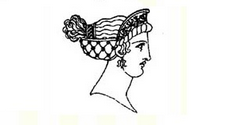Copy of `Georgian index - Equestrian terms`
The wordlist doesn't exist anymore, or, the website doesn't exist anymore. On this page you can find a copy of the original information. The information may have been taken offline because it is outdated.
|
|
|
Georgian index - Equestrian terms
Category: Animals and Nature > Equestrianism
Date & country: 31/01/2011, UK
Words: 120
|
Stance Phasewhen at least one foot is in contact with the ground.
StallionA male horse that has not been gelded(castrated). Also called 'entire' and in the West, a 'stud' horse.
Starany white marking above or between the eyes
Stockingwhite extending up to the cannon
StrideThe amount of ground the horse covers in one "step".
Stripea narrow white stripe down the face
StudA stallion that is kept for breeding purposes.
Suspension Phasewhen no hooves are on the ground.
Swing Phasewhen the hoof is lifted and brought forward.
Symmetrical gaitgait in which limb movements on one side are repeated on the opposite side half a stride later. Example: trot, pace.
TackThe equipment worn by the horse including saddle and bridle.
ThoroughbredThese days 'Thoroughbred' is a distinct breed of horse,(first studbook published: 1791), said to be descended from 3 Arab stallions brought to Britain in the 17th century. Thoroughbreds average 16 hands. Most racehorses are thoroughbreds. Thoroughbreds make excellent hunter/jumpers.
Trot2 beat diagonal symmetrical gait
TrotOne of the four gaits of a horse. One foreleg and the opposite hindleg are on the ground as the other foreleg and opposite hindleg are moving forward. This is faster than a walk but slower than a canter or gallop.
TwitchA metal clasper applied to the top lip that is used to temporarily restrain a horse, usually for medical treatment.
Walk4 beats symmetrical gait
WalleyeAn eye that has no pigment or a blue tint. Vision is not affected by the color of the iris.
WarmbloodA horse type, often also referred to as sport horses. The are the result from crossing heavier draft-horse(cold bloods) breeds with lighter Thoroughbred or Arabian "hot-bloods". They became an entire class of horse as well as breeds, such as the Swedish Warmblood. All coach horses are warmbloods, draft horses are too slow, and even for a curricle, an Arabian or Thoroughbred is too light.
WithersThe slight ridge in a horse's back just before the mane starts. This is where height is measured on a horse.
Yearling:in the year after the birth year. Incidentally, a yearling is too young to ride! Most saddle horses aren't worked hard until they're at least four years old, though breaking and training may start earlier.

